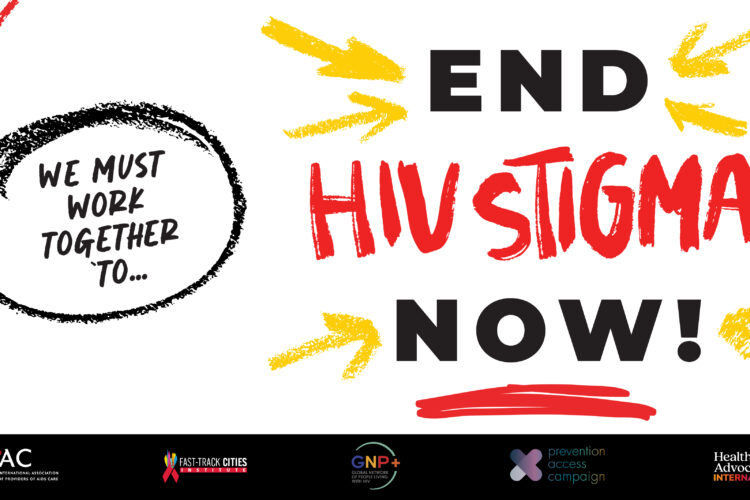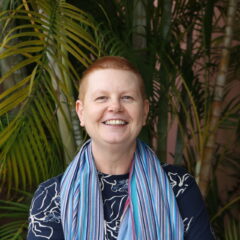What is HIV stigma and discrimination?
On 21 July 2025, we commemorate Zero HIV Stigma Day. Zero HIV Stigma Day spotlights the courageous work of individuals and communities in challenging stigma based on HIV status. People living with HIV have a strong history of mobilizing against stigma and discrimination. The date for Zero Stigma Day was chosen in honour of Prudence Nobantu Mabele (21 July 1971 – 21 July 2017), a South African activist who lived openly with HIV at a time when people living with HIV were subject to widespread stigma, discrimination and violence in workplaces, healthcare settings, in general society and even within their own families.

UNAIDS defines HIV stigma as a persistent and harmful form of othering that leads to various discriminatory actions, denying individuals social acceptance and perpetuating social inequalities. HIV-related discrimination refers to any distinction, exclusion, or restriction based on a person’s actual or perceived HIV status. In many countries, such discrimination has been institutionalized through laws and policies that negatively affect people living with HIV.
HIV stigma is frequently internalized, which involves people living with HIV internalizing the negative beliefs and attitudes that are pervasive in society, leading to feelings of shame and self-blame, which impact self-worth and self-care. Internalized stigma is also a significant factor in non-adherence to HIV treatment.
Despite international progress in addressing HIV stigma and discrimination, it remains a major barrier to access to healthcare services. At a recent preconference session of the International AIDS Society HIV Science Conference 2025, titled “Women Know What Works – Celebrating the successes of women living with HIV in the global response”, Maximina Jokonya, a youth leader from Y+ Global, described the stigma and discrimination experienced by young women living with HIV. When attempting to access healthcare, they are subjected to practices that strip them of their dignity and undermine their sexual and reproductive health rights. “Young women are not lost to follow-up; there are systems that prevent them from returning to health facilities,” she said.
HIV stigma and trans communities
When people experiencing HIV stigma are also members of marginalized communities, the stigma is compounded. Trans and gender diverse community members living with HIV experience complex, intersecting systems of stigma and discrimination, especially if they are also part of other marginalized communities, such as migrants and refugees, people of colour, people with disabilities, sex workers or people who use drugs.

UNAIDS data shows that 49% of trans and gender diverse people report experiencing stigma and discrimination when seeking HIV care. Many trans community members, especially trans women, struggle to access or remain in HIV care due to past experiences of stigma, fear of stigma and internalized stigma.
In the context of increasing anti-gender narratives and transphobia in societies around the world, stigma and discrimination are increasing, as anti-gender movements promote discriminatory laws and policies, and engage in hate speech, harassment, and violence against trans and gender diverse people. Anti-gender attacks, stigma, discrimination and transphobia have a direct impact on access to healthcare. Trans men are still systematically excluded from national HIV responses, due to myths and misconceptions about their HIV risk, and trans women who experience police violence are twice as likely to avoid seeking health care compared to other trans women.
Community-led action to dismantle stigma
Mainstream programs to address HIV stigma are often targeted at the general population and do not adequately deal with the intersectional stigma experienced by marginalized communities.
This is particularly the case with programs addressing internalized stigma. The International AIDS Society Global Consensus Statement on HIV-related Stigma states that interventions “should endeavour to target a combination of structural-level and individual-level risks and resilience to tackle internalized stigma.” However, in practice, research and interventions tend to focus on internal stigma as a psychological phenomenon, without engaging with the external factors that fuel the internalization of stigma.
There is an urgent need for funding for community-led responses that provide safe spaces where trans and gender diverse community members can access HIV services, and for community-led advocacy to counter anti-gender narratives and work towards law reform.
In the words of Erika Castellanos, GATE’s Executive Director,
We are tired of hearing about how resilient we are – we don’t need resilience, we need respect and opportunities.
Resources for trans communities
GATE supports trans-led organizations by providing vital resources for trans-led organizations engaging in national HIV responses and working to counter anti-gender movements. GATE also supports the sustainability of the trans rights movement, with innovative initiatives such as our Innovation Lab.
On Zero Stigma Day, find out more about how you can get involved and support GATE as we work to eliminate stigma and advance justice and equality for trans and gender diverse communities around the world.






